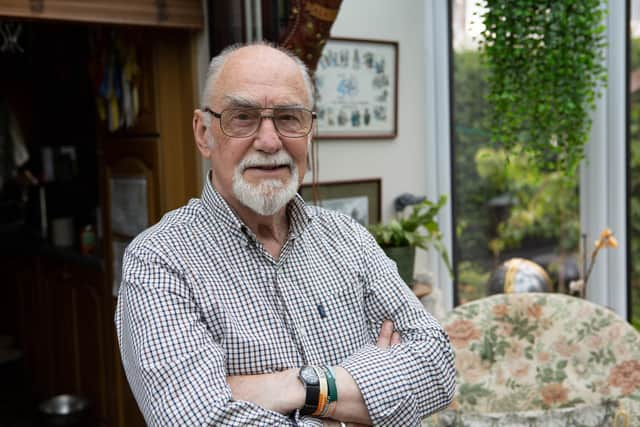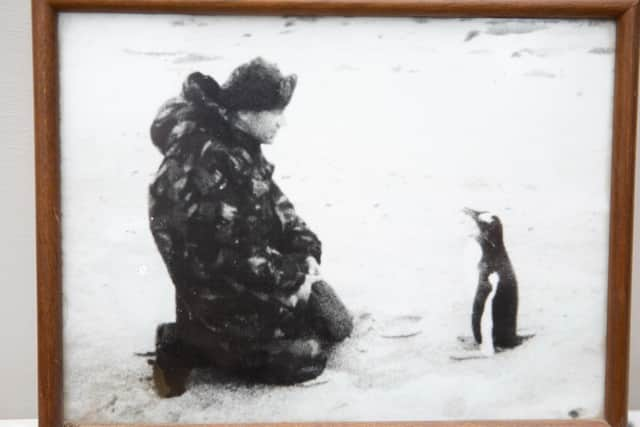Mirfield war veteran reflects on his time in the Falklands on 40th anniversary
and live on Freeview channel 276
The Falklands War lasted 74 days, with the surrender from the Argentinians signed on June 14, 1982.
The conflict was the first military action since the Second World War that utilised all elements of the Armed Forces, with 255 British personnel losing their lives.
Advertisement
Hide AdAdvertisement
Hide AdSeventy-six year old David Pinder, from Mirfield, was deployed to the Falkland Islands in March 1982 to carry out work as a Deputy Chief of Staff for Prisoner Handling and Processing, which involved coordinating and processing prisoners of war.


David said: “I was a young 36 year old Major commanding a company of Green Howards in Catterick when the news came out that the Argentines had landed on the Falklands.
“I was asked if I would volunteer for a particular job in an incremental team that was being set up, which was essentially set up to look after prisoners of war.
“I think it was late March when we moved down to Southampton, which is when we started putting the team together.
Advertisement
Hide AdAdvertisement
Hide Ad“We then moved with the second part of the fleet down to the Ascension Isles and that's when the troops and fire brigade started to get together.


“We then set off south through some extremely stormy weather, in which we were actually on a small British Rail Ferry which had been requisitioned - the thing I remember the most was the incredible waves, they were quite remarkable.
“After Goose Green, which was the first big battle, we then went on-shore to start processing the prisoners.
“I was then moved into General Jeremy Moore’s headquarters to become the Second Operational Staff Office, which meant I was responsible for making sure his orders were translated and sent out to the fighting units.
Advertisement
Hide AdAdvertisement
Hide Ad“One of the problems we had after the surrender was signed was that the Argentines on the island had surrendered but the Argentine Government had not approved it.
“There were far more Argentine soldiers on the Falklands than we had realised and at one point we were responsible for around 12,000 prisoners.
“The Falkland Islands is a big area but it is very thinly populated so there weren't many places to keep all these prisoners - but the Argentinians didn't want them back.
“We had a real problem keeping them warm, dry and fed - in the end the British Red Cross intervened.
Advertisement
Hide AdAdvertisement
Hide Ad“These were the realities we were faced with, not ‘oh we will have a gin and tonic now because the war is over’.
“The fighting is over but now you have to start clearing up.
“It is nice that there is some public acknowledgment but for the people who were in it, they don’t just think about it one day a year.
“I live my life remembering constantly about the friends I had who ain't here anymore - I remember them everyday.
Advertisement
Hide AdAdvertisement
Hide Ad“I hope people will continue to remember that a lot of good people died taking those islands back.”
A commemorative event at the National Memorial Arboretum will take place today (June 14) at 2.45pm.
The remembrance service is now fully booked. However, the event can be watched live online.
For more information, visit https://www.britishlegion.org.uk/get-involved/remembrance/remembrance-events/falklands